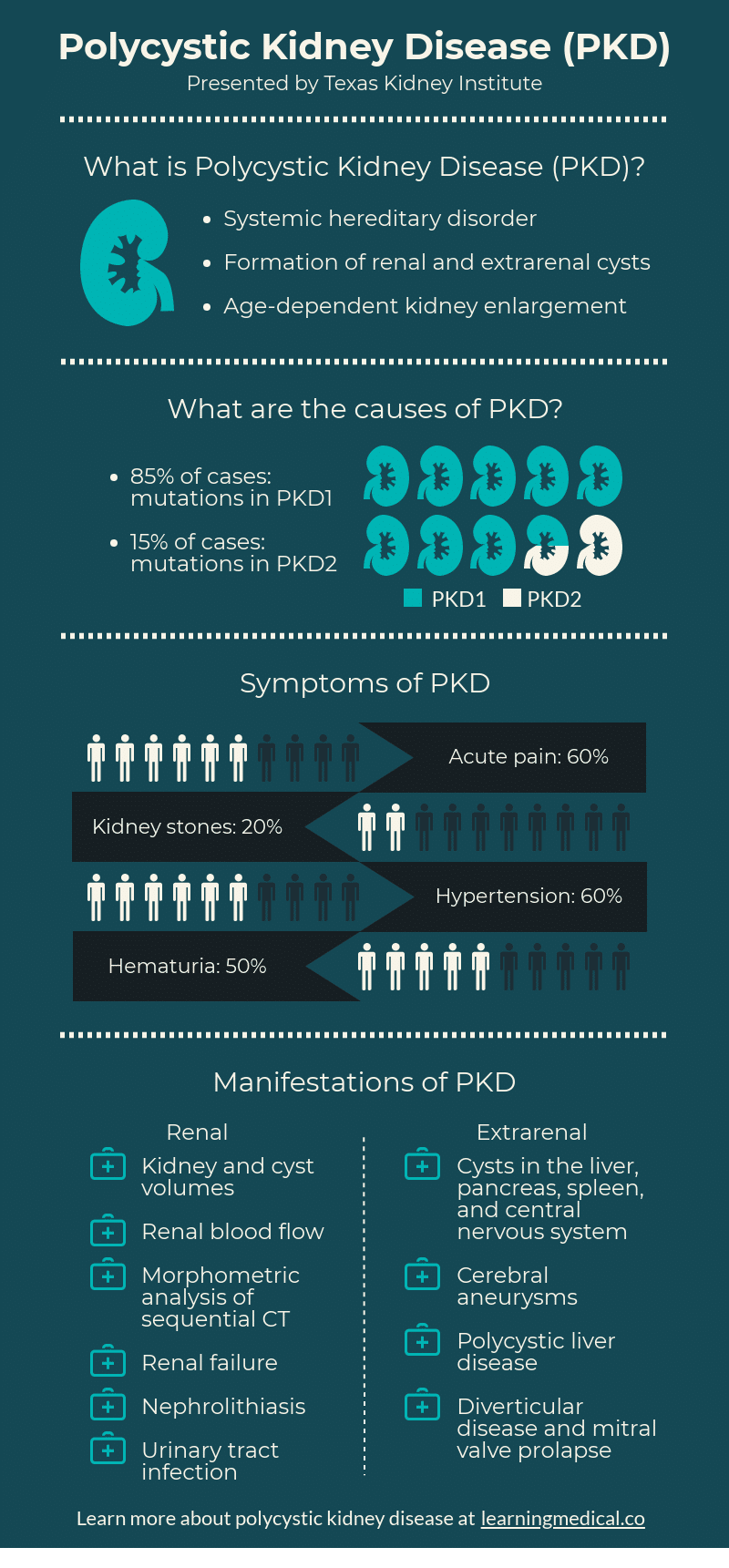A recent phase 3 trial studying the effects of tolvaptan found that the drug slowed the rate of decline in kidney function in patients with autosomal dominant polycystic kidney disease. According to Vicente Torres, M.D., Ph.D, the director of Mayo Clinic’s Translational Polycystic Kidney Disease Center, tolvaptan is the first treatment that targets a mechanism directly contributing to the development and growth of kidney cysts in this condition.
What is Polycystic Kidney Disease (PKD)?
Polycystic kidney disease (PKD) is an inherited disorder in which clusters of cysts develop primarily within your kidneys. These cysts can damage the kidneys and even develop in other organs, particularly in the liver. PKD is a condition with no cure. Read more about PKD here.
What is Autosomal Dominant PKD?
Autosomal dominant PKD (ADPKD), one main type of PKD, is found in all races and sexes and affects 1 in every 500 or 1,000 individuals in the United States. ADPKD is the fourth most common cause of end-stage kidney disease and requires either dialysis or kidney transplant. Approximately half of individuals with this disease will eventually require either dialysis or kidney transplant by age 60. Read about dialysis here and kidney transplants here.
Why does Tolvaptan matter?
Tolvaptan is an FDA-approved short-term treatment that has been used to increase low levels of sodium in the blood of patients with congestive heart failure. The study concluded that tolvaptan was able to intervene in the disease in a way to slow kidney function decline in the population studied. More specifically, tolvaptan was able to target the mechanism that contributes to the development and growth of kidney cysts in ADPKD and, as a result, slow the rate of decline in kidney function.
This could mean that patients with ADPKD could delay the need for a kidney transplant or dialysis. As there is currently no cure of PKD, this treatment could assist in managing the condition and reducing the impact of the condition on patients’ everyday lives.


